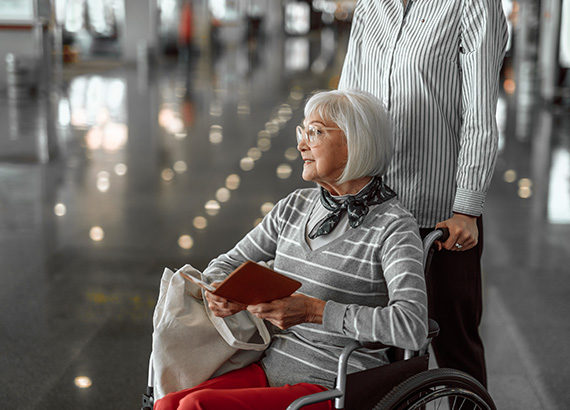Traveling with an Elderly Relative

Thinking about traveling with an elderly relative? At Vermont Aged Care, we understand that while a change of scenery can be refreshing, a successful trip with an elderly loved one requires thoughtful planning. Here are some helpful tips for a smooth, enjoyable journey.
Planning Ahead
When planning a trip, ensure everyone is on the same page. Elderly relatives often appreciate a bit more predictability, so discussing the details in advance can help reduce anxiety. Choose a destination they’ll enjoy, whether it’s visiting family or a scenic getaway, and make sure it offers a mix of relaxation and memorable experiences.
Practical Considerations
Whether traveling by car or plane, planning for comfort is key. For long car trips, map out stops for restroom breaks and rest. If flying, check with the airline for any special accommodations, including dietary needs and wheelchair access. Take advantage of senior discounts and consider accessibility at your destination, especially if mobility aids are needed.
Medical Checkups and Essentials
Consult your loved one’s doctor before traveling for any specific recommendations. Bring their medications and any extras, along with items that offer comfort, like a neck pillow or blanket. Pack water and snacks, and if car sickness is an issue, consider seating them in the front seat. Plan activities that won’t exhaust them, and choose quiet places if they’re sensitive to noise.
Packing Tips
Consider the climate and pack accordingly, as elderly people may be more sensitive to temperature changes. Include essentials like hats, sunglasses, and sunscreen. Pack some personal items, such as their current book, walking stick, or even a camera for capturing memories. Keep important items accessible, and make sure a phone is handy with emergency contacts saved.
On the Road or in the Air
Routines provide comfort, so try to stick to familiar waking, eating, and sleeping times as much as possible. If traveling by car, take breaks to stretch and refresh. If flying, a restroom visit before boarding can be helpful. Little things like a tissue, glasses chain, and a money belt can make the journey smoother.
Arriving at Your Destination
Once you’ve arrived, keep things comfortable by easing back into their routine. Prioritise rest and make sure they don’t feel like a burden if they choose to skip certain activities. Double-check their medication schedule and make their environment safe, including night lights for easier navigation. Include enjoyable activities that fit their pace.
With everything planned, you’re ready to relax, make memories, and enjoy a wonderful trip together!
This blog provides general advice. Please consult your GP for personalised information, or contact Vermont Aged Care for specialised support.

